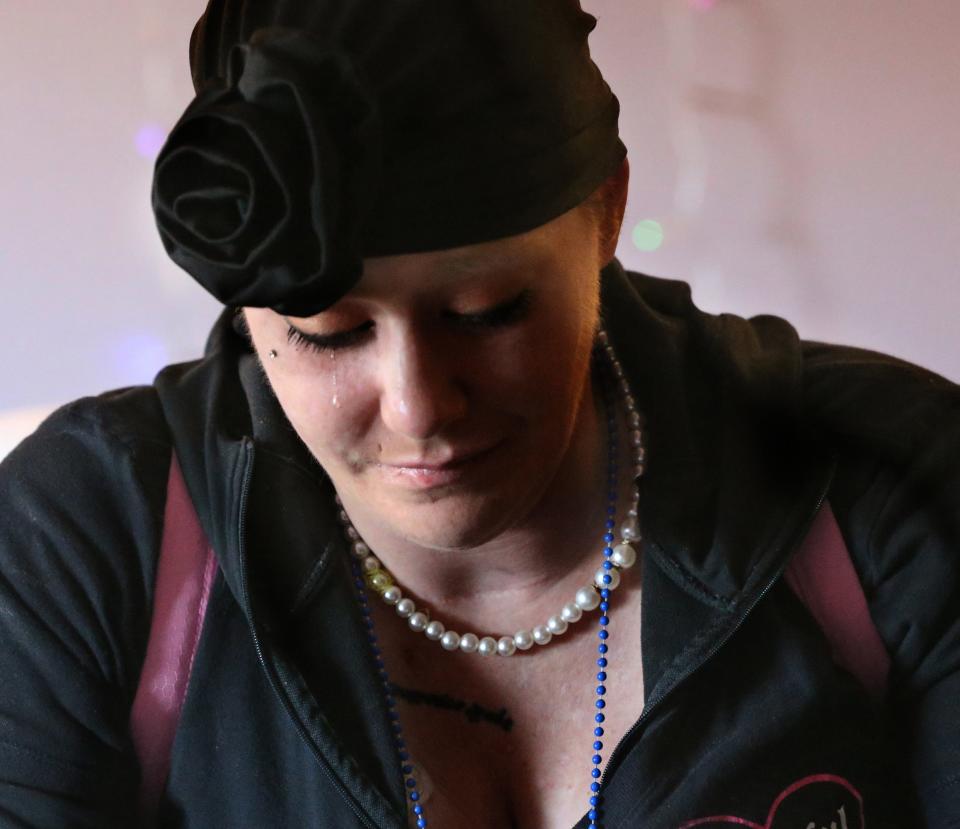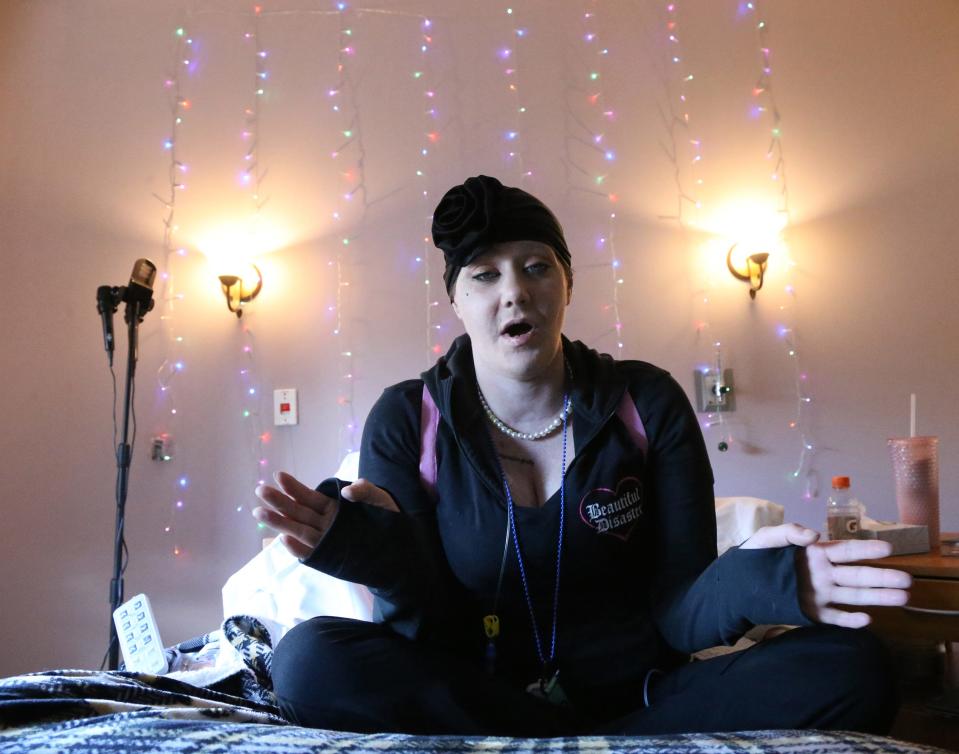Wells woman, 35, was a voice for the voiceless to the very end: 'Hard to say goodbye'
WELLS, Maine — Carmelita Edgecombe, the local mother who from her hospice bed called for society to do more to help the homeless, has died after a battle with cancer.
She was 35.
Edgecombe’s battle against cancer was one of three she fought during her final years of life. In recent years, she also overcame homelessness and a dependency on opioids that originally had been prescribed to help her with physical ailments.

Lacey Bailey an overdose-prevention clinician and a member of the Sanford Police Department’s mental health unit, helped Edgecombe get her life back on track and became a close, dear friend of hers in the process.
“She was beautiful,” Bailey said. “I was with her in her last 24 hours. Hard to say goodbye.”
Edgecombe passed away early in the morning on April 3. According to her obituary, she is survived by her parents, Heidi and Lewie Myers, her young son and daughter, her siblings, and her Saint Bernard, Maggie.
During an interview less than two weeks before she died, Edgecombe sat on her bed in her room at Gosnell Memorial Hospice House in Scarborough and stated that society needs to do so much more to help those who are homeless and struggling with their mental health.
Previous story: Dying Maine woman, 35, reveals her last wish after overcoming addiction, homelessness
Edgecombe said she had lived among the people in the homeless encampments throughout Sanford and had gotten to know a lot of them personally. She said more resources are needed for the Sanford Police Department’s mental health unit and others throughout the state who are helping those who are un-housed and struggling with addiction.
“If there is a last thing that I do, it’s to make sure that everybody understands that there’s a deficit – a huge deficit – in the area,” she said. “There are people like me who are willing to literally do absolutely anything to make sure that they can climb out of hell. They are still there. There is a lot more work that needs to be done.”
She said she knew a lot of struggling people who would benefit from the care and connection of a well-funded and well-staffed mental health system.
“On my death bed, I get to say I succeeded,” Edgecombe said, fighting back tears. “There are so many people who aren’t going to be able to say that.”

Edgecombe said that people who are homeless or are struggling with addiction are looking for work, for a purpose, for just one person to give them a chance. She suggested that there is work in Sanford that needs to be done that these individuals could do.
“If you give one of those gentlemen or one of those women a sense of purpose, the amount of work that can be done is insanity,” she said.
Born in Dover, New Hampshire, in 1988, Edgecombe moved to Maine and eventually graduated from Wells High School. She loved music and liked to sing – in her room at Gosnell, she had hung lights on a wall that flickered brightly in different colors whenever she spoke or played the radio.
“Carmelita found great joy in helping those who needed it,” her obituary stated.
Family and friends attended a funeral service for Edgecombe at Tasker Funeral Home in Dover on April 11. Bailey said she spoke and paid tribute to Edgecombe during the ceremony.
During her interview in March, Edgecombe said she had grown closer to God and had found peace after facing so many challenges during the adult part of her life.
Edgecombe said everybody needs just one person – only one – who shows them that they care for them. For her, she said, Bailey was that individual.
“I’m going home with a free heart . . . because one person believed in me,” she said. “All it took for me was one person.”
This article originally appeared on Portsmouth Herald: Edgecombe, of Wells, leaves legacy of advocacy for mental health

